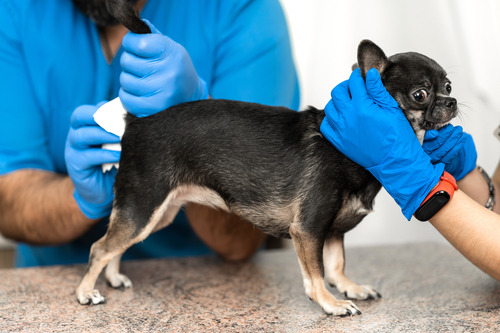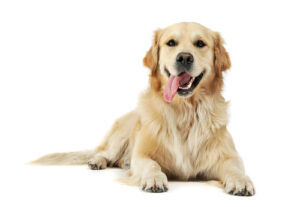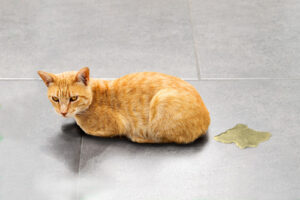Dog scooting butt is a behavior that many pet owners have observed at least once. This action, where dogs drag their rear end across the floor, can be both amusing and concerning. While it might seem harmless or even funny, it can indicate underlying health issues that require attention. Understanding the reasons behind this behavior and knowing when to seek veterinary care is crucial for maintaining your dog’s health and well-being.
Common Reasons for Dog Scooting Butt
Anal Gland Issues
Anal gland problems are a common reason for dog scooting butt. These glands, located on either side of the anus, can become blocked or impacted, causing discomfort. When this happens, dogs may scoot to relieve the pressure. Signs include excessive licking, a foul odor, and swelling around the anus. If you notice these symptoms, contact Harlingen Veterinary Clinic at (908) 359-2000 to schedule an appointment. Addressing anal gland issues promptly can prevent infection and provide relief for your dog.
Parasites
Intestinal parasites, such as tapeworms and roundworms, can cause itching and lead to a dog scooting their butt. Tapeworm segments may appear as small, rice-like grains around the anus or in feces. Regular deworming and fecal exams help prevent and treat these infections. If you suspect parasites, bring a fresh stool sample to Harlingen Veterinary Clinic for analysis and treatment.
Allergies and Skin Irritations
Food Allergies
Food allergies can lead to gastrointestinal issues and skin irritations, both of which can cause your dog to scoot. Common allergens include certain proteins, grains, and additives in commercial dog foods. If your dog is allergic to something in their diet, they may experience itching, inflammation, and discomfort around their anus.
Environmental Allergies
Environmental allergens, such as pollen, dust mites, or grass, can also cause itching and irritation. These allergens can lead to inflammation and secondary infections if your dog frequently licks or bites at their skin. Identifying and managing your dog’s allergies often requires a multifaceted approach, including dietary changes, medication, and environmental modifications.
Foreign Objects
Dogs are naturally curious and sometimes ingest or come into contact with foreign objects that can cause irritation. Small objects, such as grass awns, sticks, or other debris, can become lodged in their fur or anal area, causing discomfort and prompting scooting. Regular grooming and checking for foreign objects can help prevent this issue.
Behavioral Causes
Anxiety and Stress
Anxiety and stress can manifest in various ways, including dogs scooting their butt. If your dog is anxious or stressed, they may develop habits like scooting to cope with their emotions. Identifying the source of your dog’s anxiety and providing appropriate interventions, such as behavioral training, environmental enrichment, or anxiety-reducing products, can help alleviate this behavior.
Attention-Seeking Behavior
Sometimes, dogs may scoot simply to get your attention. If your dog learns that scooting results in immediate attention from you, they might repeat the behavior. In such cases, it’s important to ignore the behavior and instead provide attention and rewards for positive actions.
Impact on Your Dog’s Health
Dogs scooting their butt can be more than just a nuisance; it can impact your dog’s overall health. Persistent scooting can lead to secondary infections, skin irritation, and even behavioral issues. Ensuring your dog receives regular veterinary check-ups and addressing any underlying health concerns promptly is essential for their well-being.
Preventing and Addressing Dog Scooting Butt
- Regular Veterinary Check-Ups: Regular veterinary check-ups are crucial for preventing and addressing butt scooting. During these visits, your veterinarian can check for common causes such as anal gland issues, parasites, and allergies. Preventive care, including vaccinations, deworming, and parasite control, is essential for maintaining your dog’s health.
- Proper Grooming and Hygiene: Proper grooming and hygiene can prevent many causes of your dog scooting their butt. Regular bathing, brushing, and trimming around the anal area can help keep your dog clean and reduce the risk of irritation and infection. Additionally, checking for and removing any foreign objects promptly can prevent discomfort and scooting.
- Diet and Nutrition: A balanced diet and proper nutrition play a significant role in your dog’s overall health. Providing a diet that meets your dog’s specific needs can help prevent food allergies and gastrointestinal issues that might lead to scooting. Consult with your veterinarian to determine the best diet for your dog.
How Harlingen Veterinary Clinic Can Help
Understanding the reasons behind dog butt scooting can help you address the issue promptly and keep your pet comfortable and healthy. Regular veterinary care, proper grooming, and a balanced diet are key components in preventing this behavior and maintaining your dog’s overall well-being. If your dog is frequently scooting their butt across the floor, it’s important to identify the cause and seek appropriate care. At Harlingen Veterinary Clinic, our experienced team can help diagnose and treat the underlying issues causing your dog’s discomfort. Contact us at (908) 359-2000 or make an appointment online to ensure your dog receives the best care possible.





